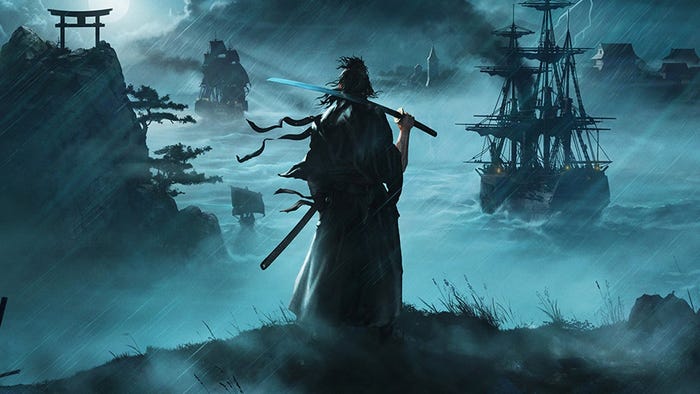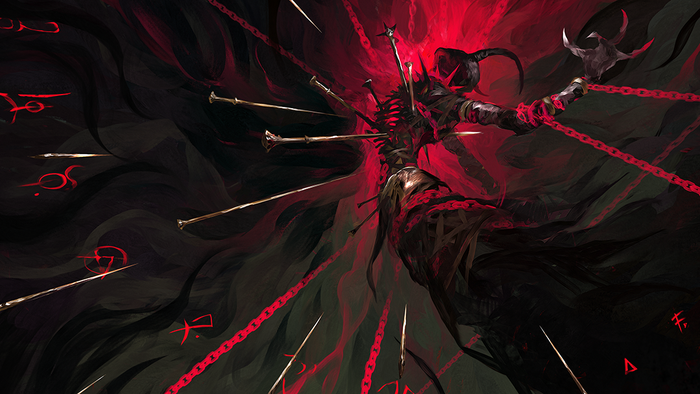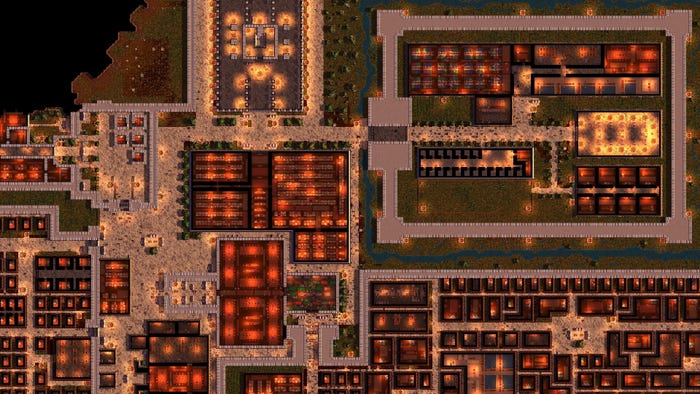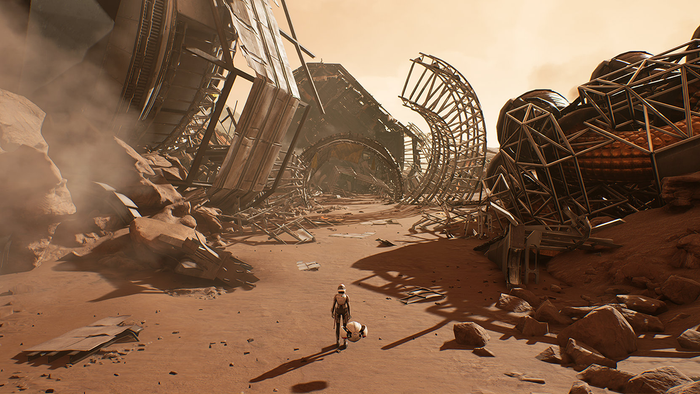Why you probably shouldn't work on your dream game
Whoa, please, put you pitchforks down! Just hear me out first. I'm also an indie developer and I have these dream games I'd like to work on. But when choosing something to invest time and money into, I try to be a bit more realistic. So let me tell you...

This post was originally published on roganews.ro, a news site dedicated to the Romanian Games industry.

Whoa, please, put you pitchforks down! Just hear me out first. I'm also an indie developer and I have these dream games I'd like to work on. But when choosing something to invest time and money into, I try to be a bit more realistic. So, please, let me tell you the reasons why I think you shouldn't work on your dream game and then I'll conclude with hopefully a better idea to approach a project. We're cool? Ok, let's start! Oh, and number 3 will blow your mind! Love it when they say these kind of things in clickbait articles.
1. Too much time
Let's face it, when we think about our dream game, we rarely think of a retro pixel art platformer* that can be finished by one person or a very small team in under a year. No, we usually think of hardcore RPGs, MMOs, FPSs, RTSs and other 3-4 letters abbreviations. The problem with those projects is, if you're a solo indie developer or even working with a couple of your friends, you're never going to finish them. At least not in a sane amount of time.
The most probable scenario when working on such a long term game is that you'll be forced to drop it somewhere along the line.
The bottom line comes to whether working on something that you'll release before growing old is important to you or not. If it isn't, by all means, follow your dream! If it is important and you think you can still make it, say in 3-4 years, well, I'm not going to say it's impossible, it's not... But your life can change so much in that time that this dream project might not fit into it anymore. And if you're working with other people, just think how incredibly hard it will be to keep them motivated working on the same thing for so long, usually with no paychecks or just something to keep them above the floating line. What if some of you get a great job offer you can't refuse? What if you'll start families or have another child or some other circumstances appear that reduce the amount of time you can work on your dream game?
The most probable scenario when working on such a long term game is that you'll be forced to drop it somewhere along the line. If you're in it just for the fun of working on it and for the experience gained, then nothing is lost, but if you had other goals, you'll have wasted a few years of your life.
2. Too much money
Games take a lot of money to make. Dream games take insane amounts. If you don't have a big stash of money hidden somewhere or a very generous investor/publisher, then get ready for some difficult times ahead. Sure, you're willing to work for no money in your free time, many of us are passionate enough to do that without a second thought. But dream games usually aren't made by a single person. You can code and do art too? Awesome! Have you also considered who is going to write your texts, create sounds, compose music, do PR, marketing, test the game?
Games take a lot of money to make. Dream games take insane amounts.
That's the thing with the successful indie stories you keep reading about, they tend to omit a lot of things. Mike Bithell, the guy behind Thomas Was Alone, big indie hit, once said that he got that successful only because he knew the right people, especially at Sony and they helped him out a lot. Do you have all the right connections you need? And if by any chance you do, are they willing to help you for free?
Another thing about money is that you might not need them that much now, but that doesn't mean you might not need them really bad tomorrow. I'm an idealistic person, but when I think I have a family to support, bills to pay and various unexpected events to account for, I tend to tip the balance slightly more to the realistic side.
3. Too rigid
Another problem with dream games I noticed through the years is that they're too rigid for their own good. You see, when you're working on your life defining project, you want it to be perfect, to make it exactly as you envisioned it and nothing less than that will do. But game development is very dynamic, sometimes changing the original vision will make for a much better result. Compromise might also be the difference between a good released game and a "would've been amazing" dropped project. And if you're working with other people, keep in mind they'll have ideas of their own and you need to be open enough to incorporate at least some of those in your game.
Compromise might also be the difference between a good released game and a "would've been amazing" dropped project.
4. Too much pressure
Let's say you start working on this dream game of yours. And every single day you're likely to think that it has to be perfect. After all, it's going to define your career, your life even, right? It's the thing that generations will remember you by! Whoa, that's a lot of pressure you just put on yourself. And maybe when you're starting out you'll be hyped and full of energy, but at some point things will start to go wrong, they inevitably do. You'll likely think you're failing, you'll think that this was your shot to create that something you always wanted to do and you've messed it all up and maybe you won't get a chance like that again and so on. I don't know about you, but having bumped fists with depression a few years ago, I'm not keen to have those kind of thoughts in my head.
Fine, what should I work on then?
If the above sounded a bit like what a greedy boss would tell you to murder you dreams, then... Well, I hope not, because I don't want that. What I actually want is for you to succeed. I want to play your games!
My advice is to work on a game that fits the below criteria:
It's fun making. Just because you're not making your dream game doesn't mean you can't love anything else. Game development is hard, definitely, but it should also be fun. Try to remind yourself that when times get rough!
It brings you more experience. Mostly anything new you work on will make you a more experienced developer, but some things have a much better combo multiplier. Try to work on games that improve the skills you want improving. Try to get out of your comfort zone with a few areas of the game. Don't go ahead and make something completely out of your league, but give yourself a decent challenge. When all else might fail, the amount of experience you gained will stay with you for a long time!
It's doable in up to two years. Preferably less, but if you can't get yourself to work on anything simpler than that, two years should be your maximum. You can sort of plan for two years, you can even sacrifice two years, but anything more than that is most likely to lead to an abandoned project. My magic timeline is somewhere between 6 to 12 months.
It costs less than you can afford. If you have savings or an investment, don't stretch your budget to spend all those money. Leave at least 30% for unexpected events, unforeseen costs and unmet deadlines. If you don't have any money, make sure to work on something you can finish in your free time. Something that relies mostly on what skills you have. And come up with clever solutions for the things you're not good at. Can't do art? How about making something with shapes? Can't compose music? Try a procedural approach. Not good at coding? Use a game engine that offers visual scripting. And if you have some spare change, don't be afraid to buy and use assets - they can save you a lot of time and money. Some might disagree with me, but I believe that it doesn't matter where you got the asset from, it's what you do with it that matters. If you make it an integral part of your game, you'll be fine.
It has a flexible vision. Your game will evolve as you work on it. Have a decent idea on what you want to create, make a plan on how to approach it, but be prepared to change things when circumstances demand it. I'm not saying to start with a combat game and finish with a racer - although I'd like to play that! Just keep your eyes open for the opportunities that will help you make a better, cheaper or faster game.
It's not the best or last game you'll make. You'll have plenty of time to work on other things, probably cooler ones, that will be better because you'll have more experience by the time you get to them. So relax and enjoy what you do now! It's not a do or die project, it's just something you like making and have fun working on. Finish it, release it and start working on something else. Your life should never depend on one single game. Everything is just a stepping stone towards something else.
Conclusion
Ok, I have to ask, am I still the bad guy? I hope not, because I just wanted to give some advice on how to approach working on a game without setting yourself up for a very probable failure. In my opinion, a failed game developer, indie or otherwise, isn't one that didn't sell enough copies of his game. It's the one that didn't even manage to release a game.
There are, of course, reasons why you might ignore the above advice. Maybe you just don't care, maybe you have a big budget at your disposal. Maybe you're amazingly good at what you do and you can pull something off that most people wouldn't be able to.
A failed game developer [...is] the one that didn't even manage to release a game.
At the end of the day, it all comes down to the same question: do I want to finish and release this game and is that feasible, all things considered? If the answer is yes, I wish you the best of luck and please let me know when you launch the game so I can play it!
* Yes, I'm working on a retro pixel art platformer. No, it's not my dream game, far from it, but I'm having a lot of fun making it! And it should be finished in just a few months.
Read more about:
BlogsAbout the Author(s)
You May Also Like









